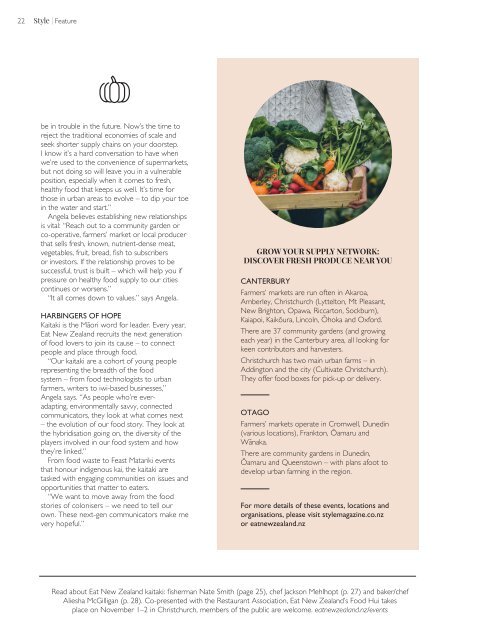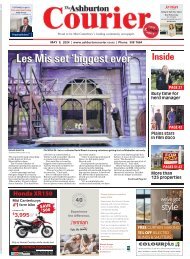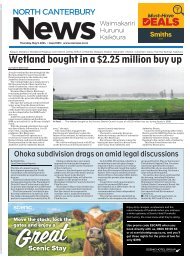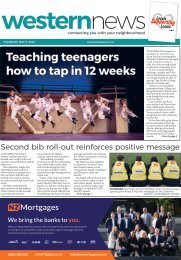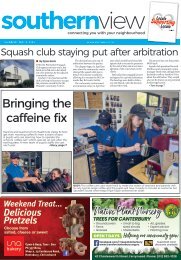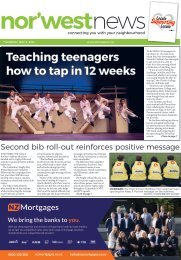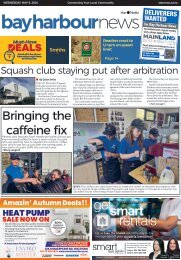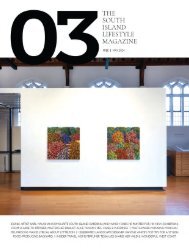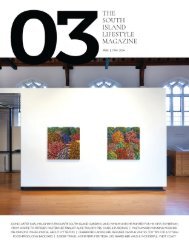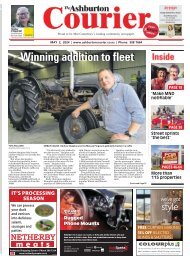Create successful ePaper yourself
Turn your PDF publications into a flip-book with our unique Google optimized e-Paper software.
22 <strong>Style</strong> | Feature<br />
be in trouble in the future. Now’s the time to<br />
reject the traditional economies of scale and<br />
seek shorter supply chains on your doorstep.<br />
I know it’s a hard conversation to have when<br />
we’re used to the convenience of supermarkets,<br />
but not doing so will leave you in a vulnerable<br />
position, especially when it comes to fresh,<br />
healthy food that keeps us well. It’s time for<br />
those in urban areas to evolve – to dip your toe<br />
in the water and start.”<br />
Angela believes establishing new relationships<br />
is vital: “Reach out to a community garden or<br />
co-operative, farmers’ market or local producer<br />
that sells fresh, known, nutrient-dense meat,<br />
vegetables, fruit, bread, fish to subscribers<br />
or investors. If the relationship proves to be<br />
successful, trust is built – which will help you if<br />
pressure on healthy food supply to our cities<br />
continues or worsens.”<br />
“It all comes down to values.” says Angela.<br />
HARBINGERS OF HOPE<br />
Kaitaki is the Māori word for leader. Every year,<br />
Eat New Zealand recruits the next generation<br />
of food lovers to join its cause – to connect<br />
people and place through food.<br />
“Our kaitaki are a cohort of young people<br />
representing the breadth of the food<br />
system – from food technologists to urban<br />
farmers, writers to iwi-based businesses,”<br />
Angela says. “As people who’re everadapting,<br />
environmentally savvy, connected<br />
communicators, they look at what comes next<br />
– the evolution of our food story. They look at<br />
the hybridisation going on, the diversity of the<br />
players involved in our food system and how<br />
they’re linked.”<br />
From food waste to Feast Matariki events<br />
that honour indigenous kai, the kaitaki are<br />
tasked with engaging communities on issues and<br />
opportunities that matter to eaters.<br />
“We want to move away from the food<br />
stories of colonisers – we need to tell our<br />
own. These next-gen communicators make me<br />
very hopeful.”<br />
GROW YOUR SUPPLY NETWORK:<br />
DISCOVER FRESH PRODUCE NEAR YOU<br />
CANTERBURY<br />
Farmers’ markets are run often in Akaroa,<br />
Amberley, Christchurch (Lyttelton, Mt Pleasant,<br />
New Brighton, Opawa, Riccarton, Sockburn),<br />
Kaiapoi, Kaikōura, Lincoln, Ōhoka and Oxford.<br />
There are 37 community gardens (and growing<br />
each year) in the Canterbury area, all looking for<br />
keen contributors and harvesters.<br />
Christchurch has two main urban farms – in<br />
Addington and the city (Cultivate Christchurch).<br />
They offer food boxes for pick-up or delivery.<br />
OTAGO<br />
Farmers’ markets operate in Cromwell, Dunedin<br />
(various locations), Frankton, Ōamaru and<br />
Wānaka.<br />
There are community gardens in Dunedin,<br />
Ōamaru and Queenstown – with plans afoot to<br />
develop urban farming in the region.<br />
For more details of these events, locations and<br />
organisations, please visit stylemagazine.co.nz<br />
or eatnewzealand.nz<br />
Read about Eat New Zealand kaitaki: fisherman Nate Smith (page 25), chef Jackson Mehlhopt (p. 27) and baker/chef<br />
Aliesha McGilligan (p. 28). Co-presented with the Restaurant Association, Eat New Zealand’s Food Hui takes<br />
place on November 1–2 in Christchurch, members of the public are welcome. eatnewzealand.nz/events


